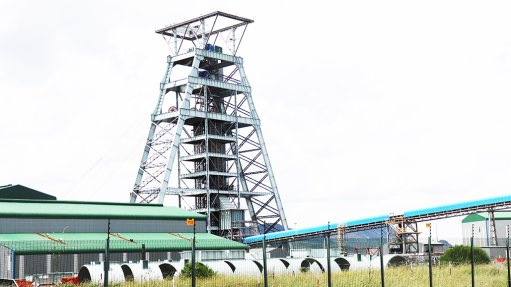Last out?
Swedish Ambassador to South Africa Håkan Juholt made a profound point at a recent workshop hosted to discuss decarbonisation options for South Africa’s steel value chain, which currently employs some 260 000 people.
The politician-turned-diplomat quoted the late Swedish trade unionist and politician, Göran Johansson, who reportedly once told his union colleagues that he was never afraid of new technology, but deeply afraid of old technology and the impact that clinging on could have on their jobs and the jobs of future generations.
That argument, Juholt said, changed the mindset of Swedish trade unions, who have since tended to embrace new technology in an effort to secure not only existing jobs but also employment opportunities for their children. The philosophy is now also embedded within government policy, with the Swedish government determined to “be first into the new, not last out of the old”.
Naturally, conditions in Sweden are entirely different to those that prevail in South Africa and lessons cannot and should not be transferred without critique.
Indeed, in a context of significant fiscal stress, massive unemployment and extreme poverty and inequality, South Africa has to be very careful before playing the role of pioneer. It is far better to allow more prosperous countries to ‘pay the school fees’ associated with new technologies and to adopt and adapt innovations for our own circumstances.
Nevertheless, there is still an important insight to be gained from the approach taken by Swedish unions. At some point, the competitiveness of industries and firms, together with the jobs they create, will be destroyed if managers or workers hold fast to outmoded operating models or technologies for too long.
There is currently a risk of doing just that in the electricity supply industry.
While progressive labour movements globally and in South Africa have always championed the just transition concept, some noticeable distortions have emerged domestically. Increasingly, justice is being equated to holding on to the old for as long as possible, rather than seeking to navigate towards the new in a way that would protect those most vulnerable to the shifts while opening up opportunities for the next generation of workers.
In the South African context, this is ironic, as it was the Congress of South African Trade Unions (Cosatu) and some of its affiliates that initially championed the just transition in a way that embraced climate science and sought to place workers at the centre of the inevitable shift towards the technologies required to mitigate the impact.
The official stance of the now diminished umbrella body since the split in Cosatu some years back remains largely intact. However, some powerful affiliates have become firm opponents, as have affiliates of the South African Federation of Trade Unions.
At what point this will be jobs destructive is hard to state for certain. That said, the failing coal fleet is already exacting a massive toll. What is certain is the most far-reaching energy transition in more than a generation is now firmly under way, with massive implications for the future of work.
Article Enquiry
Email Article
Save Article
Feedback
To advertise email advertising@creamermedia.co.za or click here
Announcements
What's On
Subscribe to improve your user experience...
Option 1 (equivalent of R125 a month):
Receive a weekly copy of Creamer Media's Engineering News & Mining Weekly magazine
(print copy for those in South Africa and e-magazine for those outside of South Africa)
Receive daily email newsletters
Access to full search results
Access archive of magazine back copies
Access to Projects in Progress
Access to ONE Research Report of your choice in PDF format
Option 2 (equivalent of R375 a month):
All benefits from Option 1
PLUS
Access to Creamer Media's Research Channel Africa for ALL Research Reports, in PDF format, on various industrial and mining sectors
including Electricity; Water; Energy Transition; Hydrogen; Roads, Rail and Ports; Coal; Gold; Platinum; Battery Metals; etc.
Already a subscriber?
Forgotten your password?
Receive weekly copy of Creamer Media's Engineering News & Mining Weekly magazine (print copy for those in South Africa and e-magazine for those outside of South Africa)
➕
Recieve daily email newsletters
➕
Access to full search results
➕
Access archive of magazine back copies
➕
Access to Projects in Progress
➕
Access to ONE Research Report of your choice in PDF format
RESEARCH CHANNEL AFRICA
R4500 (equivalent of R375 a month)
SUBSCRIBEAll benefits from Option 1
➕
Access to Creamer Media's Research Channel Africa for ALL Research Reports on various industrial and mining sectors, in PDF format, including on:
Electricity
➕
Water
➕
Energy Transition
➕
Hydrogen
➕
Roads, Rail and Ports
➕
Coal
➕
Gold
➕
Platinum
➕
Battery Metals
➕
etc.
Receive all benefits from Option 1 or Option 2 delivered to numerous people at your company
➕
Multiple User names and Passwords for simultaneous log-ins
➕
Intranet integration access to all in your organisation




















